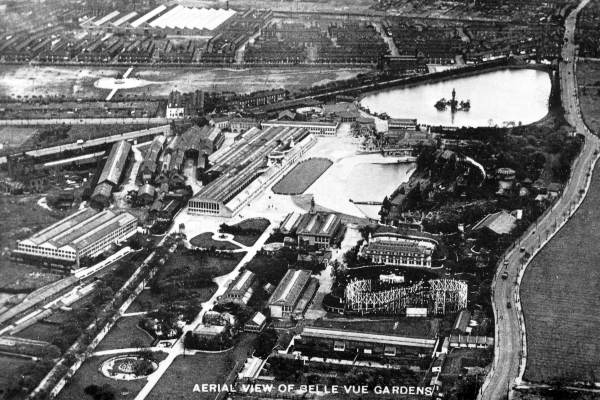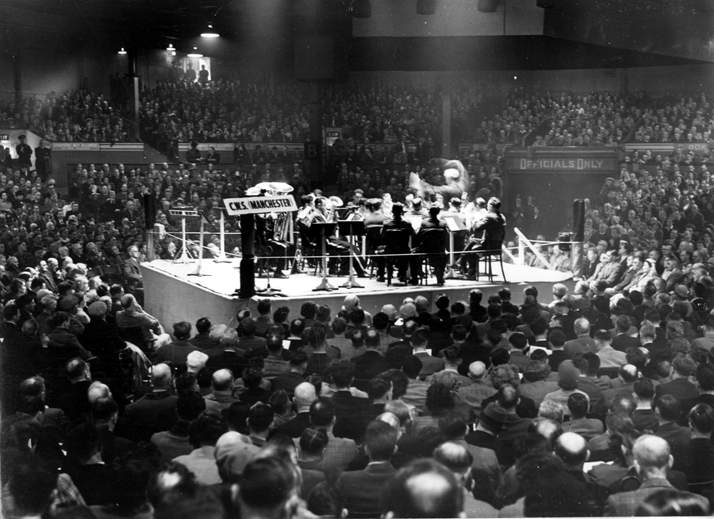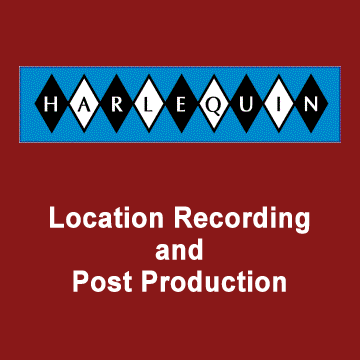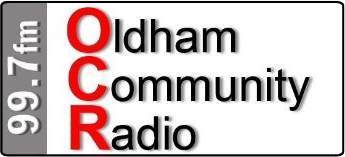
The founder of Belle Vue was a John Jennison whose initial utopian dream became a reality and although often imitated was never equalled anywhere in the North of England. He originally came from Bulwell, Nottingham and was born in 1793 but at an early age the family moved to Macclesfield and then in 1815 to Stockport. By 1825 he had become a jobbing gardener something that would be of great benefit to him in later years. It is written that Jennison's first taste of the world of amusements was with Lawton's Pleasure Gardens near Portwood.
John and his wife opened their venture in 1826 calling them 'Jennison’s Gardens' or 'Strawberry Gardens' and within three years this venture had become so successful that he took to it full time. By 1830 Jennison's Gardens were gaining a strong reputation and along with attracting many local visitors he was beginning to see many of the wealthier members of the local populace begin to take an interest in this new establishment.
One of these wealthier businessmen was George Gill who suggested that Jennison should consider moving to some land at Belle Vue on the new road between Hyde and Manchester. The date was June 1836 and that was the date Belle Vue first opened on a six-month trial basis, by December the decision was taken to take up the option of a 99-year lease on the site.
This was not the first effort at Belle Vue, following the new Hyde Road being constructed a John Walker built Belle Vue House and along with an inn it fronted a thirty-five and a half-acre site. Two acres were laid out for the public to use; thirteen acres were pasture land and the remaining twenty were used occasionally for shooting and racing. In 1834 William Crisp introduced rabbit coursing and it was he who first advertised the name 'Belle Vue Tea Gardens'.
The founder of Belle Vue was a John Jennison whose initial utopian dream became a reality and although often imitated was never equalled anywhere in the North of England. He originally came from Bulwell, Nottingham and was born in 1793 but at an early age the family moved to Macclesfield and then in 1815 to Stockport. By 1825 he had become a jobbing gardener something that would be of great benefit to him in later years. It is written that Jennison's first taste of the world of amusements was with Lawton's Pleasure Gardens near Portwood.
John and his wife opened their venture in 1826 calling them 'Jennison’s Gardens' or 'Strawberry Gardens' and within three years this venture had become so successful that he took to it full time. By 1830 Jennison's Gardens were gaining a strong reputation and along with attracting many local visitors he was beginning to see many of the wealthier members of the local populace begin to take an interest in this new establishment.
One of these wealthier businessmen was George Gill who suggested that Jennison should consider moving to some land at Belle Vue on the new road between Hyde and Manchester. The date was June 1836 and that was the date Belle Vue first opened on a six-month trial basis, by December the decision was taken to take up the option of a 99-year lease on the site.
This was not the first effort at Belle Vue, following the new Hyde Road being constructed a John Walker built Belle Vue House and along with an inn it fronted a thirty-five and a half-acre site. Two acres were laid out for the public to use; thirteen acres were pasture land and the remaining twenty were used occasionally for shooting and racing. In 1834 William Crisp introduced rabbit coursing and it was he who first advertised the name 'Belle Vue Tea Gardens'.
One of his innovations was to introduce brass band contests; he was encouraged to look at this with Belle Vue having had for a number of years a band of its own. It has been hotly contested for years - who actually started the contests at Belle Vue. The consensus of opinion seems to fall on the side of Jennison who was encouraged to get involved by Enderby Jackson, James Melling of Stalybridge, the conductor of the City Royal Band and Tallis Trimnell of Chesterfield. As a trial they organised and ran a Fife and Drum contest in 1852 which was reported as a runaway success. The following year the first amateur brass band contest was held on Monday the 5th of September to coincide with the local Wakes Week holiday in Gorton, it was this event that in later years was to become known as the British Open Brass Band Championships.
On that Monday the crowds were arriving in their droves whilst at least seven of the eight competing bands were making ready to perform their two own choice test pieces. For this first event the organisers had secured the services of three respected gentlemen to act as adjudicators; John Ellwood, Bandmaster to the Earl of Ellesmere; John Oakden Snr, Bandmaster of the 1st Royal Dragoon and Mr Dowlingate who had been the Bandmaster to the 81st Regiment. Beginning and what was to become a long held tradition they were securely locked away in an orchestral box to give an unseen assessment of all the participants to eventually arrive at a winner.
There were no uniforms worn by band members at that first event – jackets off and shirt sleeves rolled up. Each band had to pay a £1 entry fee, the first prize would be £16 and would be paid out in guineas and no band could play with less than ten playing members. The winners at this first event were the Mossley Temperance Band who had initially drawn to play number three but arriving late were allowed to go on and play sixth. Mossley caused quite a stir at that first event – unlike the other participating bands who had to perform on a ragbag set of old instruments, Mossley took to the stage on a brand new set of twelve Adolphe Sax valved brass instruments which had been purchased from his London agent Mr Henry Distin.

Mossley Band 1887
Although the event was an undoubted success and went from strength to strength for a few years it eventually begin to spiral into a decline with entries barely reaching double figures. For all these ups and early downs by 1866 the die was cast for the future with this event becoming the key event on the banding calendar, joined in 1900 with the introduction of the Crystal Palace National Championships.
With further expansion of the local railway networks getting to Belle Vue became an easier and cheaper journey for the masses.
One hundred and eight years ago the contest was going to be dominated by the name of one man, William Rimmer. The test piece on that Monday was Charles Godfrey’s arrangement of Marliani’s ‘Ilbravo’. William Rimmer conducted six bands on that day; Fodens Motor Works (1st), Black Dike Mills, note the spelling of those days (2nd), Hebden Bridge (4th), Wingates Temperance (5th), Irwell Springs (6th) and his only band not in the prizes that day was the Shaw Band.

Looking at my programme for that event and taking into consideration the availability of transport back in those days. William Rimmer was living at Belmont Street, Southport. Fodens was near Sandbach in Cheshire; Black Dike Mills were at Queensbury, West Yorkshire; Hebden Bridge, Halifax was down the road from Queensbury; Wingates Temperance was at Westhoughton in Lancashire; Irwell Springs was not that far away at Bacup and Shaw was not many miles away. Travelling too and fro between those communities and bands before the First World War could not have been easy – he was undoubtedly a good and loyal customer of the local railway companies. How did all the bands manage to arrive at the venue – no luxury air-conditioned style coaches in those days – just the usual excellent Char-a- banc service.
What a contest that must have been with Black Dike Mills playing off number twenty and pushing the eventual winners Fodens (playing number eight) and their principal cornet Edwin Firth all the way. Not even with such legendary names as Ceres Jackson, Dike’s ebullient principal cornet player and second man Wakefield born Louis Allison who c: 1912 was ultimately to follow Jackson in Black Dike’s coveted ‘end chair’, could do better than second prize.

Ceres Jackson

Louis Allison

Edwin Firth
The Jennison family retained ownership until 1925 when George Jennison having no family heir to leave it to, consequently in 1925 a new company Belle Vue (Manchester) Ltd was established and took overall control of it. The company was headed by three distinguished individuals, Sir William Gentle, a retired Chief Constable, Captain J.P.Hodge, a lawyer and John Henry Iles, a name that was to become very familiar in brass band circles - by 1929 Iles was running it himself.
I can look back now to those outings to Belle Vue during the 1960’s and still recall the memories of standing and watching with many other young kids the coaches rolling into the park. Seeing the likes of the CWS (Manchester) Band with Derek Garside and Alex Mortimer, looking further back some may remember when following the announcement they were the winners of the 1952 centenary contest playing Henry Geehl's 'Scena Sinfonica' conducted by Eric Ball.
The band returned to the King's Hall stage to what has been described as an electric atmosphere, buzzing with excitement and anticipation to perform Cyril Jenkins 1921 National Championship perennial classic 'Life Divine', a piece that Derek Garside has described as the band's 'swank piece'.
Then there was Black Dyke with Jim Shepherd and their professional conductor Geoffrey Brand; Brighouse and Rastrick with Walter (the Wee Professor) Hargreaves; Stanley Boddington and his GUS (Footwear) Band; George Thompson with Grimethorpe Colliery Band; Fairey’s and of course the mighty Fodens. We all stood there mouths wide open pointing at these idols as if they were pop stars or soccer heroes.
To tell the full Belle Vue story would take more space than is available here today but in 1956 it was taken over by Sir Leslie Joseph and Charles Forte.
Belle Vue will invoke different memories for each of you today – just one example from the modern era. Who can forget the 1968 winners Black Dyke Mills Band playing Gilbert Vinter’s test piece ‘John O’Gaunt’. At what was a packed Kings Hall that day with an atmosphere that could only be described as sheer electric they took to the stage playing off number 10 with Geoffrey Brand at the helm in what was his first contest outing with the band everyone anticipated a memorable performance.
In one small section of this piece the composer marked all three trombone parts ‘Bells –up’ – the rest as they say is history – they were the only trombone section that day to actually stand up and play the part with their bells high in the air a gesture which helped to ensure the band took the coveted first prize with 194 points.
In 1980 Belle Vue was doomed to closure and in January 1981 it was announced the main site was to be sold off with much of it being demolished. In the same year the band contest had to be moved from the cauldron atmosphere of the old Kings Hall to start a new life in 1982 at Manchester’s Free Trade Hall. The test piece for the first British Open Championships to be held outside of Belle Vue was Herbert Howells ‘Three Figures’. Music which evoked the history at Belle Vue with the three sections named after three great figures from the history of the brass band movement – Cope’s Challenge (Sam Cope), Iles’s Interlude (John Henry Iles) Rimmer’s Race (William Rimmer). The eventual winners of that year’s contest were the famous Besses o’th’ Barn Band under the baton of Dr Roy Newsome PhD, BMus, FRCO, ARCM who took the title for the seventh time in their long and distinguished history
After a further fourteen years the contest was on the move again this time to the newly built Bridgewater Hall but after only one year it was announced that the 1997 for the first time the British Open Championships would be moved out of Manchester to the Symphony Hall in Birmingham where it continues to be held.
The last event in the Kings Hall was held on February 14th 1982 with the North West Brass Band Championships. It had been agreed that the demolition could be delayed for two weeks for this event to be held following a fire at the Bolton Town Hall. A total of 56 bands with 1700 members took part in the event which had been organised by Ted Buttress, a familiar and respected name from the brass band movement and no doubt someone who is still remembered by so many here today. To be there at the end saw Harry Mortimer, the doyen of the brass band movement in attendance who would no doubt have been looking round recalling past successes and happy days he had spent at the Mecca for brass bands Dobcross Band had the distinction of being the last band to win at Belle Vue at that contest but it was fitting that Glossop School Band should say good-bye to a hall which had seen countless magical banding moments by playing 'Auld Lang Syne'. .
Whilst the buildings at Belle Vue may have gone, slowly becoming a fading memory and almost lost in the mists of time be assured that the memories, the camaraderie and the musical competition to be the best on a given day that Belle Vue evokes will never be forgotten.
At the 2017 British Open brass band championships the best bands in the world will once again come together at Birmingham's Symphony Hall to compete for the prestigious title of British Open Champions. Whilst many of the old and famous named bands have faded into the mists of time to become part of brass banding history. Some of these bands whose names have appeared almost from the very early contests will be in Birmingham once again hoping to be the champions for 2017 - Good Luck to them all.
©Chris Helme - First published 31 August 2003 - updated and edited 9 September 2017






















